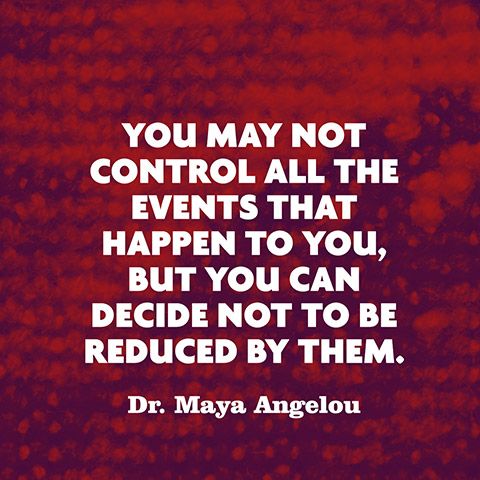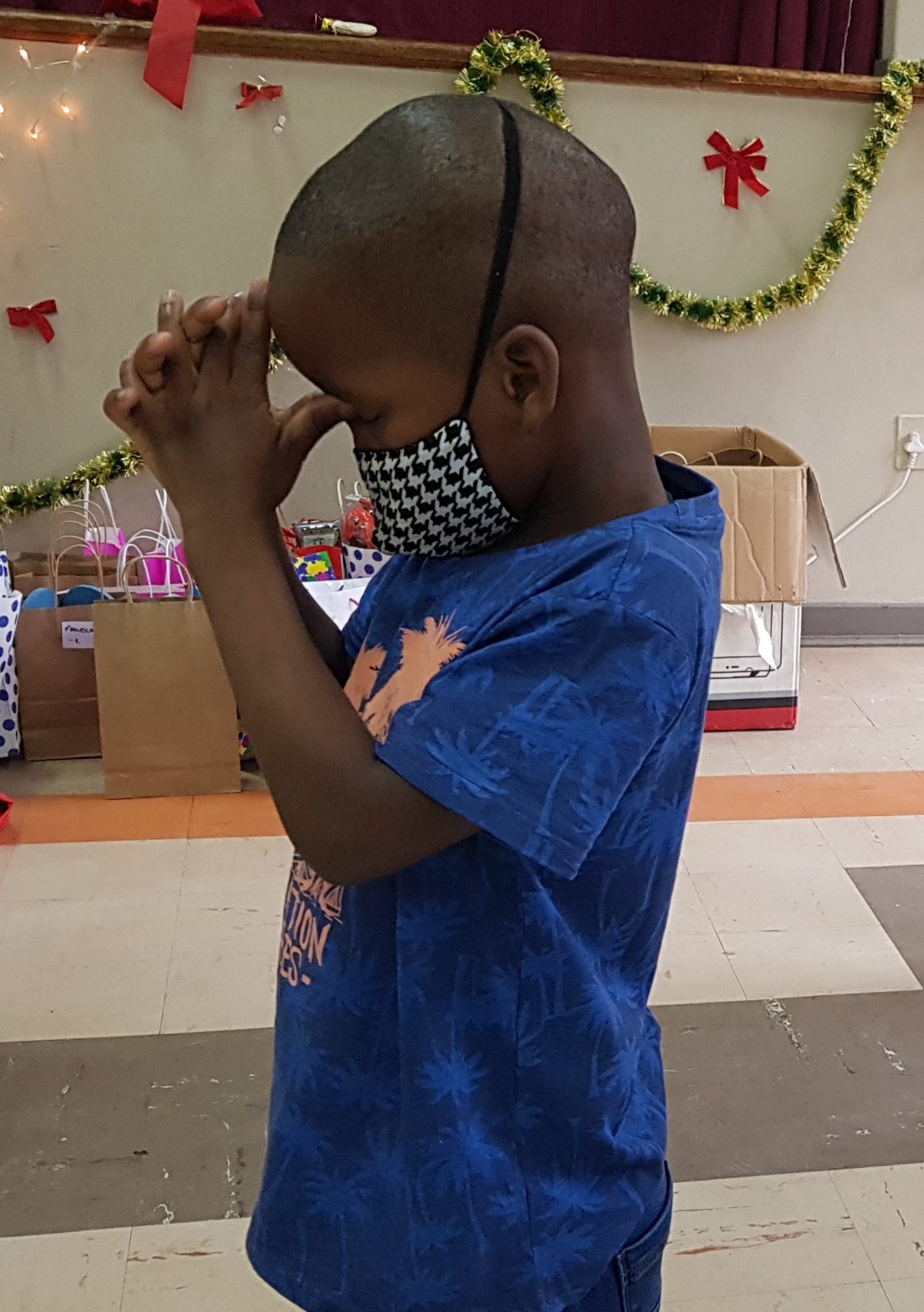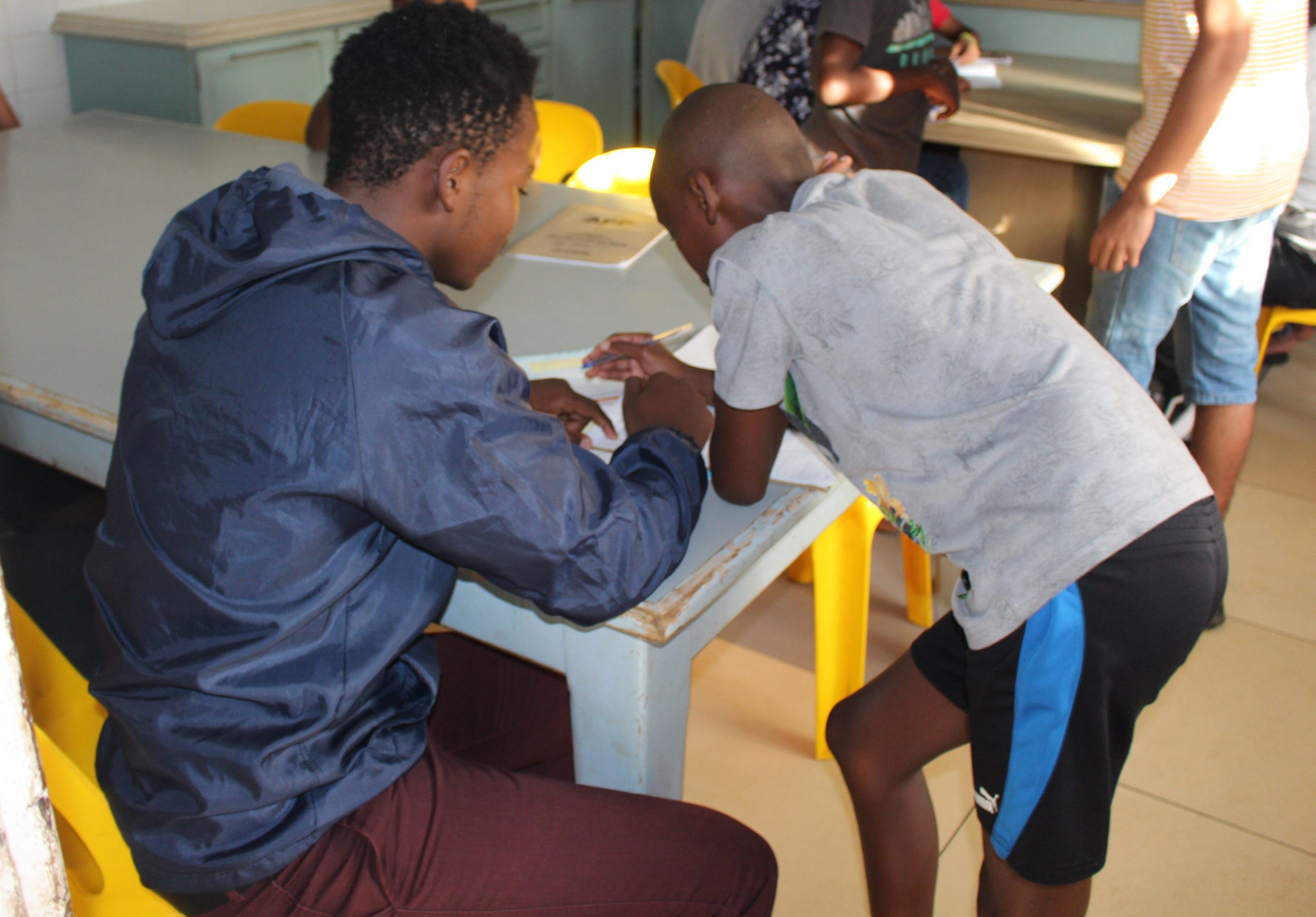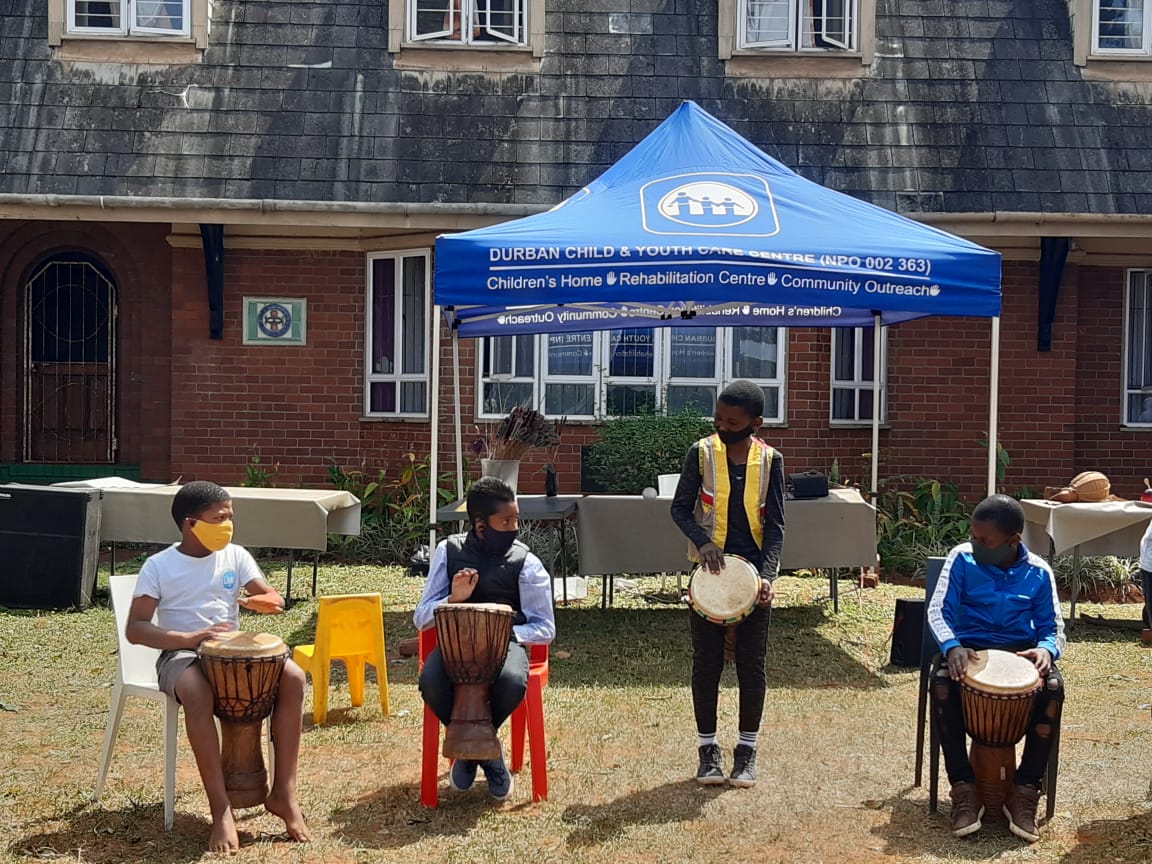
Jan 20, 2022 | Blog
There is something so light and bright about the new. Spirits are lifted with an expectancy, an excitement. Think of the birth of a baby, a different hairstyle, a new love interest, a new diary, a new dress……I could go on for a very long time! It is the opportunity to press the reset button that is so attractive about the new, the freshness of it. In the Bible, Lamentations 3:22-23, we are told that; ‘The steadfast love of the Lord never ceases; His mercies never come to an end; they are new every morning; great is Your faithfulness.’
Oh, what a great encouragement! What a wonderful way to start the New Year! I am determined to focus on that reset button. Preparing for new children and helping them settle into a new rhythm; new routine, new rules, new peers sharing your space, new people taking care of you, new school, new school shoes……. And ensuring that children remaining with us for another year know that there is the opportunity for a new start, a blank slate.
People throughout the world have suffered, truly suffered because of the havoc wrecked by Covid-19. Many have had to face the reality of moving on with gaping holes left by loss of loved ones and/or their livelihood. As I squared my shoulders to face 2022, I am fortified by these words by Maya Angelou. 2022 will present new challenges and many will be out of my control however I am resolved to meet them head on………what about you?

Nov 30, 2021 | Blog
As another year draws to a close and we are faced with having to navigate through a second festive season marred by a pandemic, we need to be mindful of the myriad of feelings that we as well as many people will experience as we celebrate this festive season.
As South Africans enjoyed the eased restrictions that came with level 1, the dark cloud of the dreaded fourth wave, which is predicted to start in a month and stretch into the festive season, is an ever-present reminder of the tumultuous nature of Covid-19. Then as 2 years of various levels of isolation and restriction draws to a close, we need to remember that there are many people who lived a lonely existence before Covid-19, and that this holiday could be especially painful for them.
Many parents who are not able to take leave or have care givers at home to supervise children during the coming school holidays, will be wracked with concern and anxiety.
The job losses due to Covid-19 and the July looting, will surely impact affected families with people stressed at a season with little to celebrate. Unlawful activity which usually rises around Christmas holiday time may soar with criminals taking advantage of the high levels of unemployment as an excuse for their criminal behaviour, leaving my people vulnerable and on edge.
The risk of depression and yes, even suicide as children struggle after 2 years of disrupted education, especially this year’s matriculants who will be feeling enormous pressure to produce good results. Added to this possible fear that the results will not allow them to pursue the study path they envisaged or meet the expectations of their parents.
Faced with the above, we can all benefit from tips for coping with the holidays:
- As we move into this festive season, it is comforting to know that we have a fighting chance in the form of a vaccination. However, being vaccinated does not mean that we should let our guard down. We still need to follow the safety regulations, i.e., sanitise/wash hands regularly, wear a mask, and maintain social distancing.
- Talk to/connect with friends and family. If we are struggling with sadness during the holidays, we need to be honest. It helps those around us understand what we are going through. Open communication will also help us understand each other.
- Spread Christmas Cheer to the less fortunate, the people that need our help may be closer to home than we realise. So, if we need help, we must not be afraid to ask – there are people who have the ability and means available to lend a helping hand. Church groups, after school care programmes, soup kitchens, community outreach programmes, are just a few examples.
- Take care of ourselves and our family. Prioritize what we know works best for us and our family. Pay attention to our mental health needs and be open to new self-care strategies. Let us not be too hard on ourselves or our family, especially children. They too have had their fair share of dealing with unprecedented schooling challenges.
- Making it through the past two years is an achievement on its own. If the academic outcome is not what we or our children hoped for, let us try again. What our children have experienced is not isolated but something that many scholars around the world have had to deal with.
- Let us find joy on our own terms―Do what matters most to us! Set realistic expectations and limits for ourselves and others, and do not be afraid to say “no” when something is outside the boundaries we set. Less worrying about the money we do not have for the things we do not really need and rather being grateful for all that we do have, riches that money cannot buy.
- Be happy! Be content! Life is a gift that should be cherished. For our peace of mind and general well-being let us focus on the spirit of the season😊

Oct 22, 2021 | Blog
Exam time has always been nerve-wracking for children, but more so for their parents! Covid-19 has notched the level of nervousness into overdrive. Extended periods of school closure, uncertainty around school holidays, the rotational system for school attendance and on-line lessons… the pressure and subsequent stress on our children has been unlike anything families have had to face before.
As a parent I am constantly mindful of the support my sons need at this time. Thinking on ways to help my youngest, in his first year of high school and my older in grade 12 has consumed much of my thoughts over the past months. Creating an environment at home that is stress free, during a pandemic, has been no easy task. Under normal circumstances matric is a year characterised by pressure, and angst. So, you can just imagine that having a matriculant at home this year has left my family feeling somewhat frazzled!
Having worked for many years with children at our centre, I am fortunate to have picked up some useful tips along the way. Younger children for instance benefit from structure and practical assistance, while older children need encouragement and support.
These are some suggestions on how to help your child prepare for his/her exams:
- Encourage them to draw up a study timetable. Children need this structure and a clear routine. When they know what needs to be done, they are less likely to feel overwhelmed and tend to be more focused.
- Stress can trigger a range of other emotions. Children, irrespective of age, need emotional support. At times just listening and acknowledging their emotions shows support and understanding of what they are going through. This will encourage them.
- Preparing for exams should not mean studying 24/7. Adequate rest and healthy snack breaks are essential if they are to keep focused and less stressed. Its easier to learn, understand and memorise work in sections rather than trying to cram for long hours before the exam.
- Working through old exam papers and revision exercises have proved to be effective. Children are then prepared for how the exam paper is set out and the way in which questions are asked. They need to stop and look at the mark allocation per question and decide how much time should be spent on each question. Whist this is helpful to children in higher grades, children in senior primary can also benefit.
- When children begin to panic because they are struggling to understand the work, it is helpful to reassure them that they can call on assistance. Many schools provide extra lessons, there are subject tutors for hire, a study buddy is helpful as is joining a study group. Drawing on these resources can help build confidence and develop a better understanding in the subjects he/she needs assistance in.
- Finally – This may be easier said than done because many of us have full time jobs but testing your child on sections learnt is helpful. It allows for encouraging words and helps assess those areas that need additional focus. Helping your child break things down makes concepts easier to grasped and understand.
Good luck – Keep your eye on the end goal and breath😊

Sep 22, 2021 | Blog
South Africa celebrates Heritage Day on the 24th September each year. This public holiday was introduced at the time of our country’s democracy to highlight the many people from different cultural backgrounds who together create our Rainbow Nation. On this day South African’s are encouraged to celebrate their specific culture and/or enjoy the shared practice of people coming together for a braai.
Here at DCYCC Heritage Day is celebrated with much excitement. Children and staff alike look forward to the opportunity to share their culture, beliefs, and traditions. You can imagine the diversity that exists when you bring 74 children and up to 12 staff members, from all over our province together to celebrate. There is a richness that one would find hard to find elsewhere.
The programme of events for the Day includes the making and sharing of cultural dishes, cultural dance, song, poetry, and storytelling. Heritage Day provides the occasion for us to encourage understanding, respect, and appreciation for other cultures. In creating this platform for our children, we confirm each child’s uniqueness and identity within our Centre, and as South Africans. In addition, we believe that learning about other cultures, leads to accepting diversity and will result in a country where all people are respected for who they are as South Africans.
Awareness of cultural norms and values is important for a child’s development, as it provides the foundation for a child’s sense of identity. Children should not be deprived from learning about their culture or other cultures, especially in a country such as ours. So, when people ask you what the big deal is about celebrating Heritage Day, you can tell them……
- Adolescents have a tough time creating their unique identity during the teenage years. Abused, abandoned, and neglected children even more so. Not only do they lose out on the basics of love, education, food, and shelter, but also their culture and heritage. When they learn about their culture, they become aware of their history, develop a sense of connectedness to something much larger than themselves and this helps build their own identity.
- Each culture has its own set of morals and values. As adults many of us can reflect on how the morals and values we uphold in our lives were shared with us by our parents. These were not enforced on us but rather modelled through the various rituals of day-to-day living. Children with strong morals and values grow up to be more grounded individuals.
- Learning about culture and heritage also encourages intergenerational interaction. Learning and being a part of family traditions and festivals give children the opportunity to connect with their parents and grandparents.
- Learning about culture and being a part of family traditions allows children to develop their own unique memory bank, that they in turn can draw on and share with their own families one day.
- As South African citizens we should encourage our children to learn about the richness of our South African culture and to be proud of our heritage.
Heritage and culture are important! It should be passed on from generation to generation for years to come. South Africa has many world heritage sites proclaimed by UNESCO – Click here to learn about them – http://whc.unesco.org/en/list/
May you and your families enjoy a safe and enriched Heritage Day!

Aug 25, 2021 | Blog
As women’s month draws to a close, I feel the need to shine a spotlight on the phenomenal women who have over the years impacted on the lives of our young people, more specifically our girl children. This diverse group of women, of all ages and backgrounds have individually and collectively contributed towards our girls discovering their worth and finding their voices.
These women: employees and volunteers, through their heart for hurting and vulnerable children, and their selfless commitment, have helped children heal, believe in themselves, and dare to dream.
Whilst my heart yearns to name these inspirational women, I dare not, in fear that my memory fails me and I leave out even one name. Suffice to say that these women, spanning a period of 31 years have touched the lives of many……… from our cooks, through to admin staff and members of our Child Care Team, arts and crafts volunteer, surrogate granny’s, mentors, prayer warriors, role models, our girls have been blessed!
I quote from “Daring to be ourselves”, by Marianne Schnall, “As women, we must learn to trust our instincts and inner wisdom, not only for our own personal well-being, happiness, and wholeness, but also in order to express our true power and individual special gifts in the world”.
Thank you for sharing the gift of YOU with our girls.
Jul 23, 2021 | Blog
At the beginning of this year, who could have guessed that we would see ourselves battling the third wave of the pandemic and protests across KZN and Gauteng triggered by the arrest of Jacob Zuma. As the protests progressed into looting and total chaos, we realised that this was more than just about the arrest of Jacob Zuma. There is a much deeper, rooted, issue we are facing as a country. Poverty, social injustice, corruption, these are just but a few. These unprecedented times have caused major fear and temulent emotions about our present safety and the future. We need to be mindful of the effects this has on our emotional state, and act to prevent poor mental health.
During the week of unrest, we saw a range of mixed emotions amongst our children. Holiday placements with family in community had already cancelled because of the level 4 lockdown, so all our children remained at the centre. Children were fearful for the safety and well-being of themselves but more especially for their parents. Watching incidents as they occurred on the roads around the centre, on social media and over the news; whilst keeping us abreast of what was happening, was also the trigger of confusion, anxiety and heightened negative emotions. Even our child care team struggled to put their own feelings aside as they responded to our children.
“Social unrest typically refers to the general dissatisfaction of a group and the ways they bring attention to societal problems. Even if you don’t belong to the dissatisfied group, you may experience intense emotions and triggers based on how the issues that are deeply rooted in the country affect you personally.” With the combined prolonged fear and resulting stress of COVID-19 and the social unrest, we need to be aware of the symptoms of mental health conditions.
It’s easy to become overwhelmed by your emotions and it’s difficult to disconnect from the feelings of those around you. During this time, we helped our children express their feelings and assured them that it is normal to try and figure out where you fit in what is happening. Comfort and strength come from understanding what is happening, even when it is out of your control! Beware though, – while you do this, it is important to make a concerted effort to avoid going down a path of negative thoughts and uncontrollable emotions. It is important to take care of yourself. Below are some useful links we found that can help you manage your mental health:
https://discoverymood.com/blog/managing-mental-health-during-social-movements-and-civil-unrest/
https://www.globalcitizen.org/en/content/ways-south-africans-take-care-of-mental-health/?template=next





